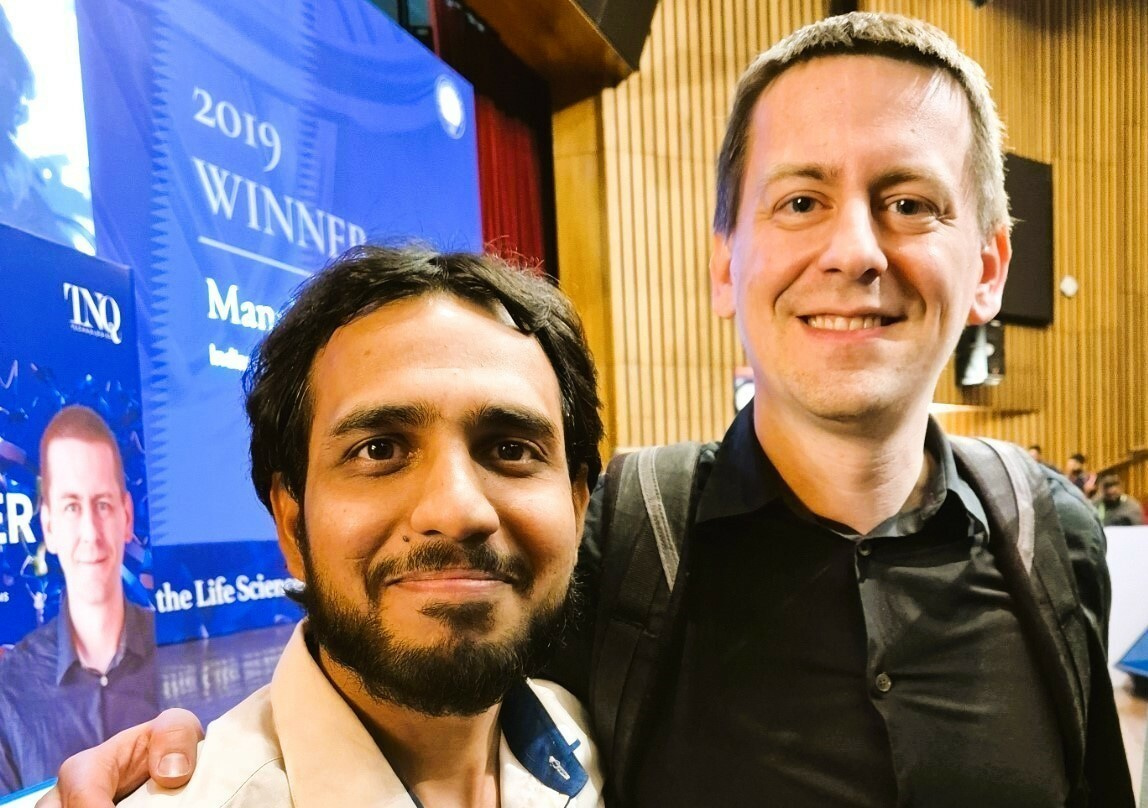BiochemAI: Trihybrid Cross-breed

The intersection of AI, chemistry, and biology is reshaping scientific landscapes, leading to innovative solutions in drug discovery, molecular synthesis, and understanding biological processes. This post relishes the dynamic interplay among these fields and anticipates their future developments.
Emergence of AI
The emergence of AI as a transformative technology has been rapid and profound, particularly in the last decade. Initially rooted in the 1940s with the advent of electronic computers, AI has evolved through various phases, from early algorithms to sophisticated machine learning models capable of processing vast amounts of data. Recent breakthroughs, such as deep learning and natural language processing, have propelled AI into mainstream applications across diverse sectors, including healthcare, finance, and space exploration. This trajectory indicates that AI will continue to expand its influence, driving innovation and efficiency in scientific research and beyond.
AI X Chem dihybrid cross
Artificial Intelligence is transforming chemistry by enhancing the efficiency and precision of chemical research. AI algorithms facilitate the autonomous synthesis of organic compounds, enabling robotic chemists to predict reaction outcomes and optimize synthetic routes with unprecedented accuracy. For instance, recent advancements have demonstrated how AI can autonomously determine optimal reaction conditions, significantly improving yields in complex organic syntheses. This integration not only accelerates the pace of discovery but also opens new avenues for exploring previously uncharted chemical spaces.
AI X Bio dihybrid cross
In biology, AI's impact is equally profound, particularly in the realm of protein science. The 2024 Nobel Prize in Chemistry awarded to David Baker for computational protein design and to Demis Hassabis and John Jumper for their work on protein structure prediction exemplifies this trend. The development of models like AlphaFold2 allows researchers to accurately predict protein structures from amino acid sequences, a task that has eluded scientists for decades. This capability enhances our understanding of biological functions and disease mechanisms, paving the way for innovative therapeutic strategies.
AI X Chem X Bio trihybrid cross
The interplay between AI, chemistry, and biology creates a powerful triad that fosters groundbreaking innovations. By leveraging AI's predictive capabilities alongside chemical synthesis techniques and biological insights, researchers can design novel proteins tailored for specific functions or therapeutic applications. For example, AI-driven approaches can optimize enzyme design for biocatalysis or drug development by simulating interactions at a molecular level. This collaborative framework not only accelerates research but also enhances the reliability of experimental outcomes through data-driven insights.
Future of new breed: BiochemAI
As AI technologies continue to evolve, they will increasingly integrate into chemical and biological research workflows, leading to more sophisticated models that can handle complex datasets. While the integration of AI with chemistry and biology presents exciting opportunities, a couple of caveats must be considered as we advance into this new frontier:
(1) Data quality: There are concerns regarding data quality; the effectiveness of AI models heavily relies on high-quality datasets. Inaccurate or biased data can lead to erroneous predictions and potentially harmful outcomes in drug development or biological research.
(2) Interpretability: Interpretability remains a challenge in many AI applications. Complex models often operate as "black boxes," making it difficult for researchers to understand how decisions are made or predictions are derived.
As we navigate the challenges associated with data quality and interpretability, there is a profound opportunity to foster a collaborative framework that prioritizes responsible innovation. BiochemAI not only promises to yield groundbreaking discoveries that address pressing global health and environmental challenges but also inspires a new generation of tridisciplinary scientists equipped to tackle the complexities of life sciences.
[Cover Image caption: My catchup with 𝐁𝐢𝐨chem𝒜𝐼 guru John Jumper, Senior Research Scientist from Google Deepmind during TNQ Distinguished Lecture-2024 at Indian Institute of Science (IISc), Bangalore.]





Join the FEBS Network today
Joining the FEBS Network’s molecular life sciences community enables you to access special content on the site, present your profile, 'follow' contributors, 'comment' on and 'like' content, post your own content, and set up a tailored email digest for updates.